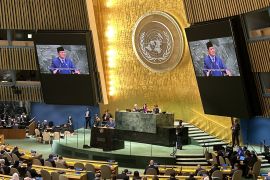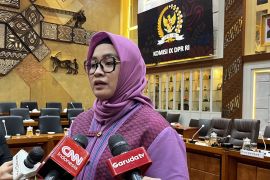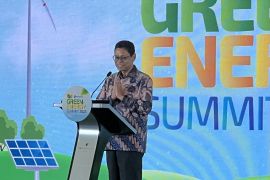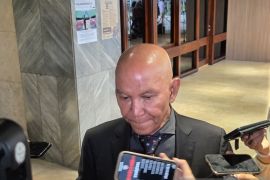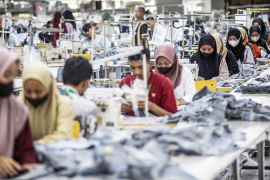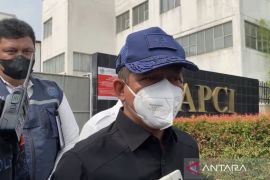President Susilo Bambang Yudhoyono unveiled Tuesday the 2012 state budget plan with a total expenditure of Rp1,418.5 trillion to be balanced with revenues and grants amounting to Rp1,292.9 and a deficit of Rp125.6 trillion.
In his state-of-the-nation address at a plenary session of the House of Representatives (DPR), the President said that tax receipts in the 2012 Draft State Budget increased 16 percent to Rp1,019.3 trillion from Rp878.7 trillion in the 2011 revised state budget.
In the draft 2012 state budget, state revenues are dominated by tax receipt worth Rp1,019.3 trillion or 79 percent of the state`s total revenues and grant, so that the ratio of tax receipt against the GDP was 12.6 percent or up from 12.2 percent.
"The government has the commitment to increasing and developing the sources of state incomes, both from sources of tax incomes and non-tax receipts (PNBP)," President Susilo Bambang Yudhoyono
"Increasing state revenues is the key to our reliance," the president said. The country`s revenues and grant which were set at Rp1,292.9 trillion were up 10.5 percent from the 2011 revised state budget at Rp1,169.9 trillion.
While the state expenditures which were set at Rp1,418.5 trillion increased by 97.7 trillion or 7.4 percent from the 2011 revised state budget which was set at 1,320.8 trillion.
Thus, the draft state budget deficit for 2012 was at Rp125.6 trillion, or 1.5 percent of the Gross Domestic Product (GDP) or lower than the deficit of the 2011 revised state budget which was set at Rp150.9 trillion.
The 2012 state budget heavily depends on tax revenues. Therefore the government will make all out efforts to increase tax income.
"In order to optimize the efforts to achieve the non-tax revenue target, the government will continue to increase oil lifting and cost recovery efficiency," the President said.
He said that the government would also push up its receipts from state-owned firms` dividends through more directed and effective restructuring of state companies (BUMN), application of corporate governance and increasing synergy among BUMNs.
The head of state also stressed efforts to increase state income from the ministries and institutions` service activities by putting in order and improving the non-tax revenue administration.
Regulations regarding non-tax revenues and tariff adjustment will also be improved. "Efforts to increase state revenues from taxes, excise and non-tax sources are aimed to reinforce the national economic and budget resilience. Only that way we can gradually reduce dependence on external debts," the president said.
Deputy Chairman of the DPR`s Commission XI on financial affairs Achsanul Qosasi said that the target of tax receipts in the 2012 draft state budget amounting to Rp1,019.3 trillion was achievable. "We still have a big chance to increase our tax income," he said.
He said that of the 20 million owners of taxpayer registration numbers (NPWP) or tax payers, only about 8 million had been paying taxes. "There are still 243 million taxpayers. Only eight millions have paid taxes," he said.
However, Emir Moeis, another legislator, expressed hope that the high tax target should not lead the director general for taxation to act like an animal hunter. "It should not happen that those who have already paid taxes are exploited to pay tax again," Emir said.
Emir who is a legislator of the Indonesian Democratic Party of Struggle (PDIP) said that the director general of taxation should be able to develop the tax payer potentials.
Finance Minister Agus Martowardojo has said earlier that he would increase state revenue from corporate tax collection. So far, only about 500 thousand of the 22.6 million corporate bodies had paid their tax.
"After we carried out a study we found that there are 22 million businesses, but only 1.5 million have Tax-payer Registration Number (NPWP), of which only 500 thousand paid tax," the minister said.
For this purpose, the minister expressed hope that the ministry of finance, the Central Bureau of Statistics (BPS) and Bank Indonesia would exchange information on exports and imports so that information about corporate tax-payers would be increased.
"This would improve data integrity so that we can see whether an importer or exporter already has an NPWP or not, and know the value of its transactions and commodity data. This way, we can take an accurate and proper decision," the finance minister said.
He said that in order to collect taxes well, the finance ministry and the BPS would conduct a national taxation census. The census needed to be conducted because of the 238 million people with 118 million workforce, only 44 - 47 million regularly paid taxes.
He said that tax receipts needed to be increased to reduce the government budget deficit which was estimated at 1.4 - 1.9 percent in 2012, so that Indonesia would not depend on debts. (*)
Reporter: By Andi Abdussalam
Editor: Kunto Wibisono
Copyright © ANTARA 2011


